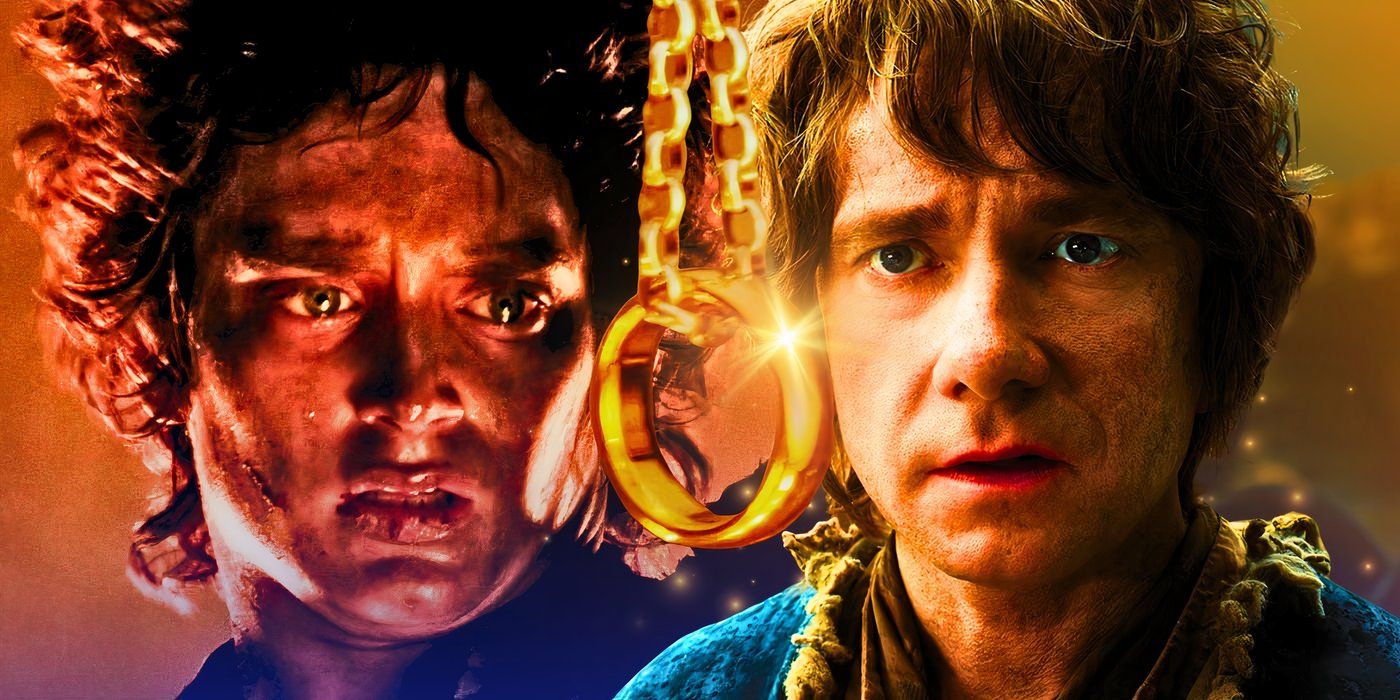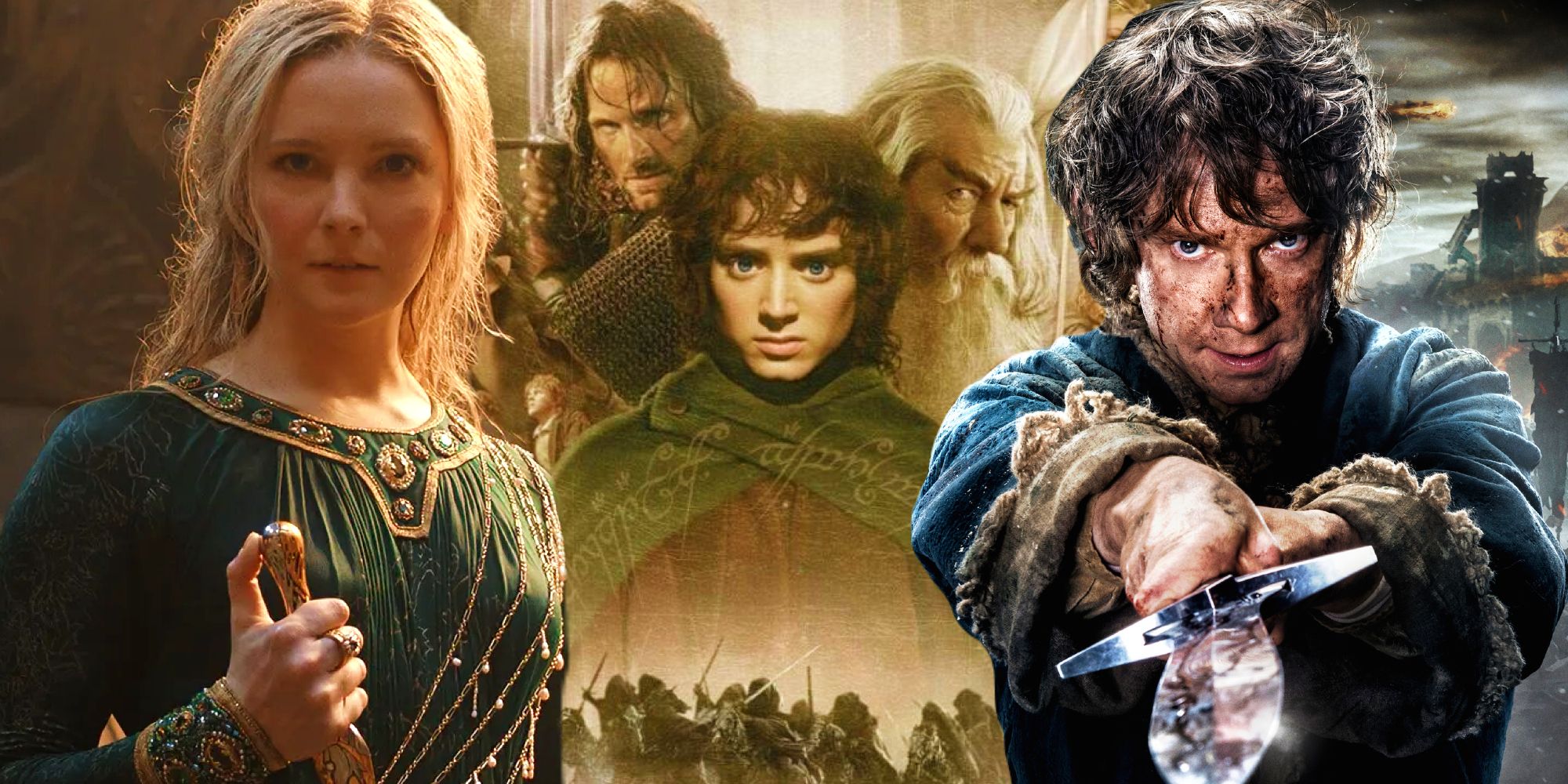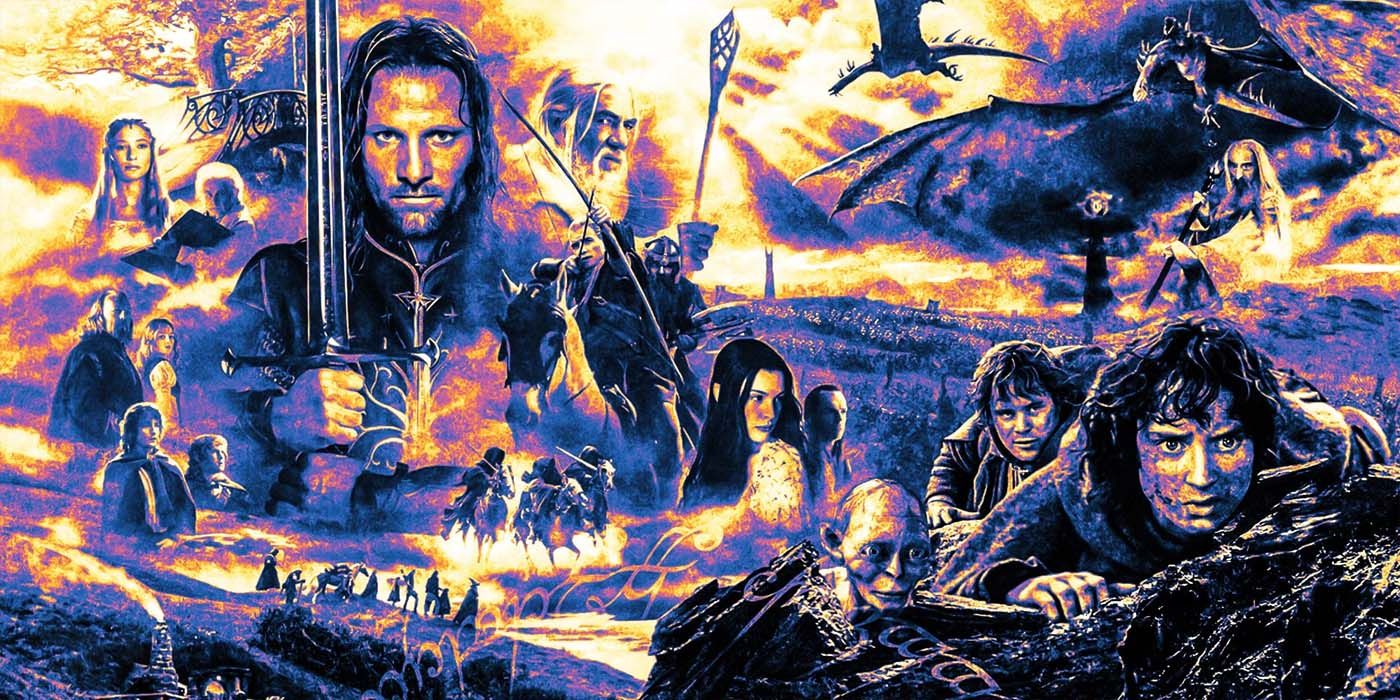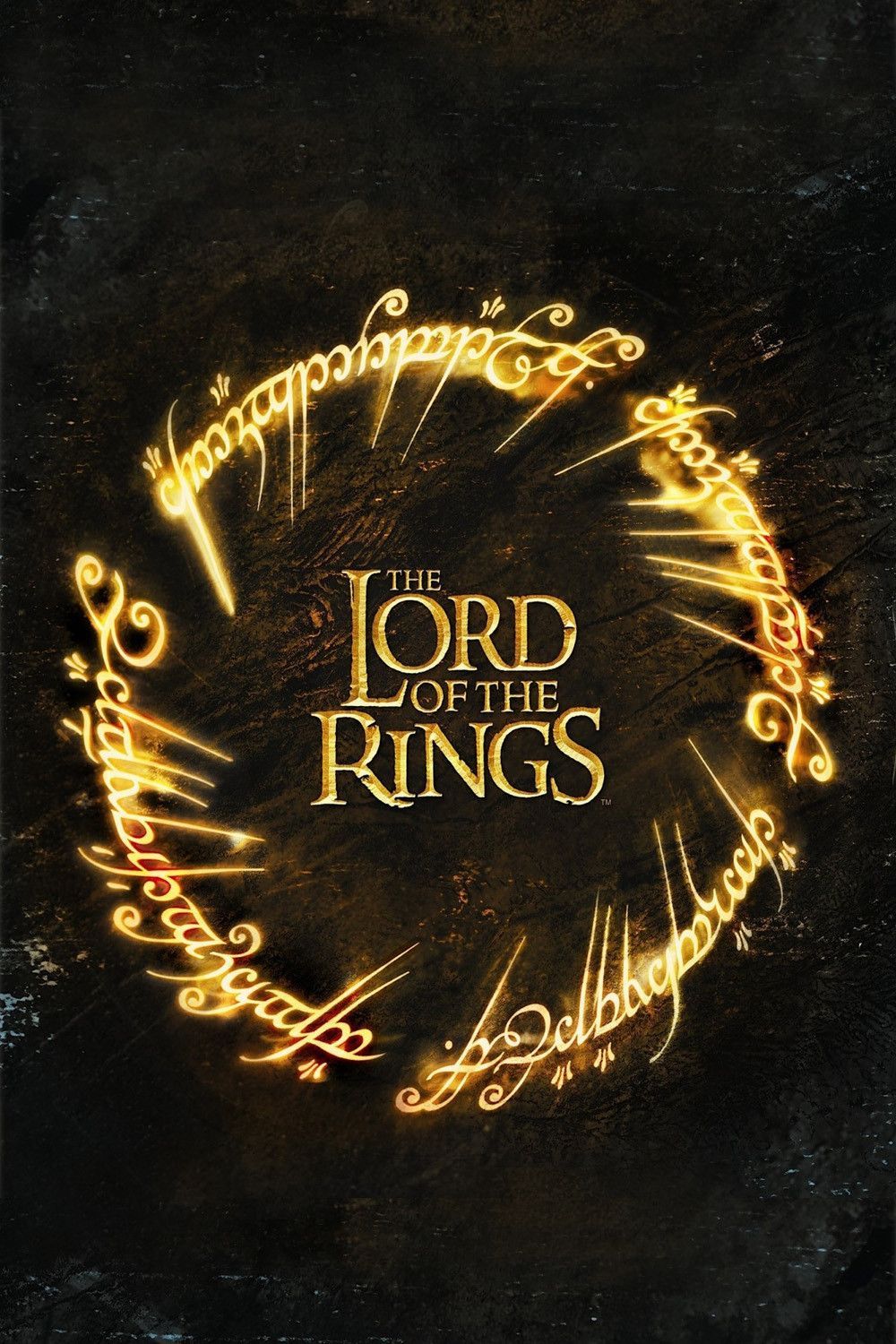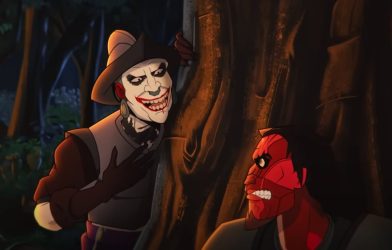Summary
- The Lord of the Rings franchise is expanding rapidly, with new movies and shows on the horizon, sparking excitement but also a little concern.
- While upcoming adaptations like Hunt for Gollum and War of the Rohirrim are anticipated to be successful, there’s a fear of franchise fatigue.
- Tolkien’s legacy must be treated with care and adaptations should not be rushed for profit to avoid damaging the timeless appeal of Middle-earth.
The Lord of the Rings franchise is growing rapidly, but I am concerned about what this will mean for the future. For years, we only had Peter Jackson‘s Lord of the Rings and The Hobbit as modern movies, but that has quickly begun to change. Prime Video’s The Lord of the Rings: The Rings of Power streamed its first season in 2022, and it wasn’t long after Warner Bros and New Line Cinema announced that they were working on a variety of other Middle-earth films. It seems to be a whole new age of Lord of the Rings movies, and as exciting as that is, I fear it could cause problems as well.
The ball will begin with The Rings of Power season 2, which will begin streaming on Prime Video on August 29, 2024. From there, the animated movie The Lord of the Rings: The War of the Rohirrim will hit theaters on December 13, 2024, with a story following the legendary king of Rohan, Helm Hammerhand. Next will be the planned The Lord of the Rings: The Hunt for Gollum, which is Andy Serkis and Peter Jackson’s big return to the franchise. This isn’t the end, and more Lord of the Rings adaptations have also been promised.
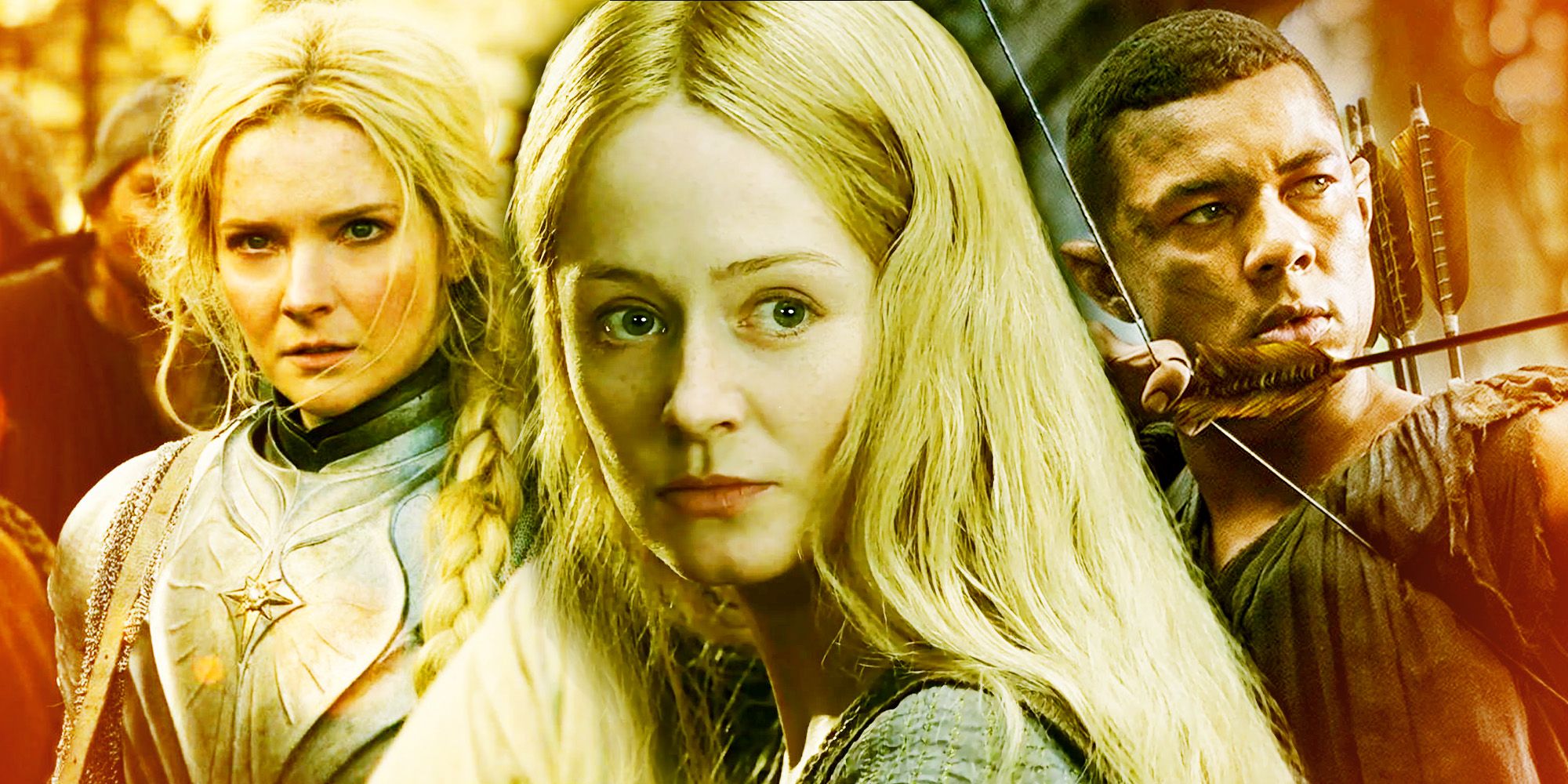
Related
Every Upcoming Lord Of The Rings Movie & TV Show
The Lord of the Rings franchise has seen a resurgence in film and TV. Here is every project coming out of Middle-earth in the near future.
New Lord Of The Rings Movies Are Exciting, But There May Be Too Many At Once
The Market May Soon Be Oversaturated With Lord Of The Rings Adaptations
Though I know Tolkien wasn’t a fan of screen adaptations of his work, I have a deep appreciation for the role of movies and TV in the world of modern storytelling. A visual medium is a great way to ensure that a story stays relevant for generations, so I have always supported Midde-earth stories being brought to the screen (yes, even The Rings of Power). For this reason, I am thrilled to see War of the Rohirrim, Hunt for Gollum, and whatever else New Line Cinema cooks up. However, as I sit in anticipation, there is a nagging sense of anxiety that it is too much at one time.
The upcoming Lord of the Rings movies are likely to be successful. Even Rings of Power, which has been at the center of heavy criticism, set records for Prime Video in the way of viewership. The animated format of War of the Rohirrim may mean somewhat lower box office numbers than its franchise predecessors, but it is still sure to find its audience. Then there’s Serkis and Jackson’s return with Hunt for Gollum—a shoo-in financial success. Given all the promise here, I can understand why these companies are taking advantage, but this reminds me too much of other franchises’ big mistakes.
It seemed that audiences were simply getting tired of superheroes, and I’d hate for this to happen with Lord of the Rings.
My fear is that Lord of the Rings will duplicate the “superhero fatigue” phenomenon. Marvel became the reigning champ of the theatrical world, with the superhero craze peaking in about 2021. It seemed for a time that a superhero movie could do no wrong, and Marvel certainly took advantage of this. New MCU movies and TV shows were being rapidly produced, which unfortunately led to lower viewership and box office results. It seemed that audiences were simply getting tired of superheroes, and I’d hate for this to happen with Lord of the Rings.
Lord Of The Rings Fatigue Could Cause Significant Damage To Tolkien’s Legacy
Tolkien’s Work Deserves To Be Handled With Slow & Careful Respect
Lord of the Rings is one of the oldest fantasy franchises, and fans have been passionate about the stories of Middle-earth for decades. Stan Lee’s superhero characters have been around for a long time, but Lord of the Rings has been around even longer. It’s for this reason that my heart would be broken to see the public begin to lose interest in Middle-earth or, worse, to see Tolkien’s work of art become nothing more than a means for monetary gain.
It’s for this reason that my heart would be broken to see the public begin to lose interest in Middle-earth or, worse, to see Tolkien’s work of art become nothing more than a means for monetary gain.
Tolkien was vehemently against his works being adapted to the screen. In one of his letters, he famously stated that “the failure of poor films is often precisely in exaggeration, and in the intrusion of unwarranted matter owing to not perceiving where the core of the original lies.“ I have always found that a good movie adaptation can avoid this, and I have defended the effort to bring Tolkien’s tales to the screen. However, if audiences get burned out on Lord of the Rings movies because there are too many of them, the author will have been proven right, and his legacy will suffer.
The moral themes of Tolkien’s
Lord of the Rings
discourage rushed mass production for monetary gain, which makes the creation of too many film adaptations even more ironic.
There Must Be A Long Break After This Next Wave Of Lord Of The Rings Movies
I’m Excited For The Upcoming Lord Of The Rings Movies, But New Line Needs To Slow Down
I don’t believe that Rings of Power, War of the Rohirrim, and Hunt For Gollum will be enough to cause irreversible damage to the Lord of the Rings franchise. However, the idea that there are more on the way gives me pause. I feel that New Line Cinema must proceed with extreme caution. After one more installment, it may be best to give audiences time to digest these new screen adaptations before diving in to make more. More importantly, more Lord of the Rings movies should only be made if they aim to bring the heart of Tolkien’s work to the screen. Monetary gain is almost always a slippery slope toward a disgraced movie franchise.

